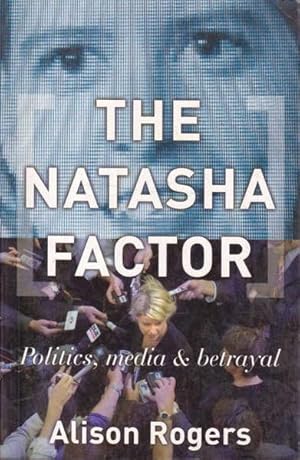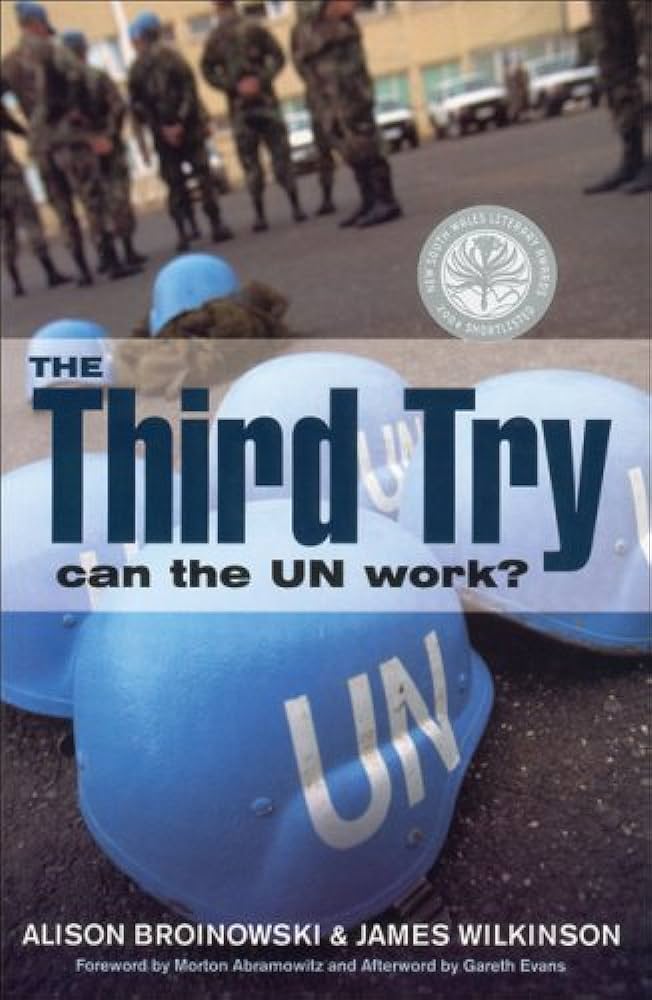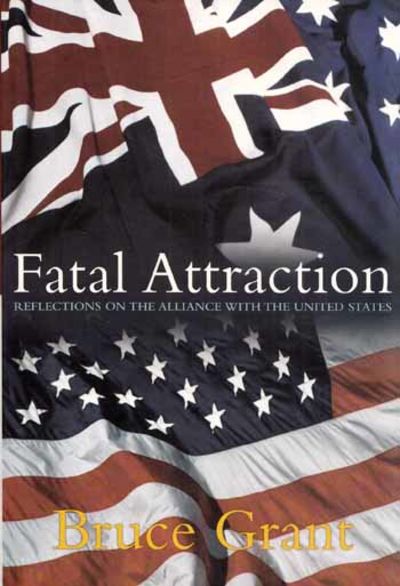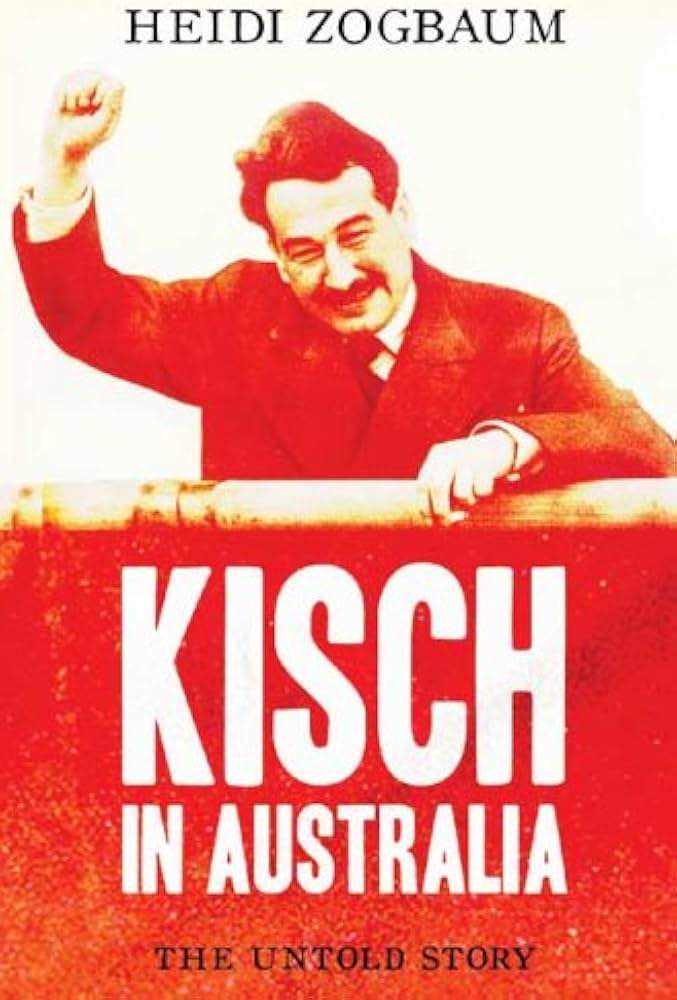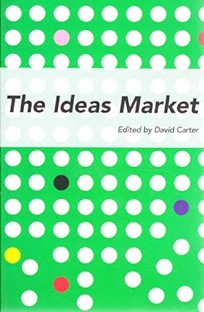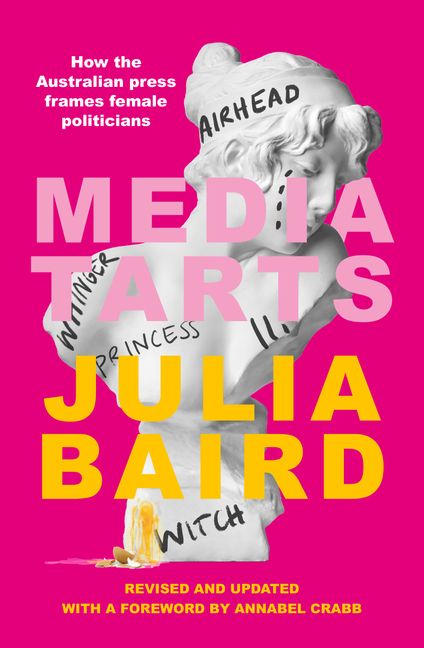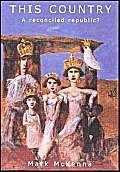Politics
The Green State: Rethinking Democracy and Sovereignty by Robyn Eckersley
Robyn Eckersley’s provocative new study of environmental governance reinvests belief in the democratic state as a site of ethical action and ecological responsibility. She counters a trend in recent Green thinking to see the state, in particular the liberal democratic state, as the enemy of current and future environmental well-being. Eckersley’s own background is in political science, and she largely engages with other political theorists. However, the anti-statist perspective that she questions is common across a range of environmental disciplines, and it is refreshing to see a re-visioning of the political structures we already have rather than an imagined future ‘ecotopia’ as an answer to environmental ills.
... (read more)The Natasha Factor: Politics, Media and Betrayal by Alison Rogers
Alison Rogers has shone the spotlight on a shadowy aspect of politics: the role and experiences of the media adviser. As her story is also an insider’s account of Senator Natasha Stott-Despoja’s period as leader of the Australian Democrats, its value is enhanced, both for what it tells us about Stott-Despoja, as well as its less than flattering treatment of the Democrats’ party machine.
... (read more)The Third Try by Alison Broinowski and James Wilkinson & Australian and US Military Cooperation by Christopher Hubbard
Reflecting on the sixty-year history of the United Nations, it seems obvious that this is an organisation created through the slow and tortured process of natural evolution rather than the product of careful, intelligent design.
Years ago, back when the UN had barely escaped its adolescence, the Nobel laureate and eminent diplomat Ralph Bunche observed that ‘the United Nations is a young organisation in the process of developing in response to challenges of all kinds’. He referred to institutional enlargement that typically continued as the global agenda grew. Agencies soon developed to coordinate the work of other agencies. Consequently, the modern UN became a haphazard creature, made up of a bewildering mix of political organs. Each part is intended to serve a different purpose, whether maintaining international security, advancing respect for fundamental human rights, or promoting economic development. And each component comes labelled with an almost impossible array of scientific-sounding designations (EcoSoc, for instance, UNEP, UNESCO, UNICEF and plenty more to make up page after page of abbreviation lists).
... (read more)Fatal Attraction by Bruce Grant & How to Kill a Country by Linda Weiss, Elizabeth Thurbon and John Mathews
‘Since the end of the Cold War, foreign policy has become economic policy.’ It was March 1999 when I put this cliché du jour to a British bureaucrat handling policy about cultural industries and trade agreements. The World Trade Organisation was young, the New Economy was everywhere, the NASDAQ still had 3000 points to rise. But we were walking across Trafalgar Square, Nelson was watching and I should have known better. ‘That,’ she said tolerantly, ‘is what they told us in 1948.’ As we spoke, NATO forces were at war. Bill Clinton, who had won the first US election since the Cold War by reminding his predecessor about the economy, had decided that force was now required in the Balkans. He’d already apologised for not using it in Rwanda. Two-and-a-half years later, the mutual defence provisions of Australia’s military alliance with the US would be activated for the first time. The Cold War was over, but there would be plenty for diplomats to talk about besides trade deals and prosperity. Later in 1999, the collapse of the Seattle ministerial meeting of the WTO showed that even economic policy was going to be hard work.
... (read more)Martha Nussbaum is a distinguished contemporary philosopher who has written in exemplary fashion on ancient philosophy and philosophy of literature; she has also produced important work in social and political philosophy, philosophy of mind and feminist thought. This book on emotions, law and the idea of a liberal society shows some of the strain of that industry: it is prolix and a little uneven. But it also has the characteristics of her best work: sparkling clarity, high learning, intellectual vigour and something to say. The scope, the confidence – the grasp of it all – astonishes.
... (read more)Kisch in Australia: The untold story by Heidi Zogbaum
An unfamiliar character from a strange land is barred from setting foot on mainland Australia. Desperate to land, he leaps from ship to shore, breaking his right leg in the process. A conservative attorney-general desperate to protect our borders, pursues this man, now on crutches, through the courts. The charismatic stranger wins his court case and holds the government up to ridicule. Shadowed unrelentingly by Canberra’s spooks, he urges Australians to look past their government’s pronouncements and discover for themselves the real dangers to world peace. Whilst history, even in Marx’s cycles of tragedy and farce, never neatly repeats itself, these duels between Egon Kisch, Czech communist, and Robert Menzies, Anglophile attorney-general, do have contemporary import. No doubt this explains why Kisch’s adventures in 1930s Australia have been told several times through film, theatre and books. In this new and enjoyable recasting of the drama, Heidi Zogbaum reminds us of the bare bones of Kisch’s Australian sojourn, focusing for the most part on his successful courtroom battles and European background. These are interspersed with detailed summaries from spies such as ‘Snuffbox’, charged with dredging up the evidence on Kisch’s European activities that led to his eventual deportation.
... (read more)Mark Latham by Barry Donovan & Quarterly Essay by Margaret Simons
It is sobering to read these two optimistic works about a man of promise, written in mid-2004, in the light of their subject’s defeat in October 2004. Neither author was convinced that Latham could win. Barry Donovan has too much experience of the vagaries of the electorate to be anything but cautious, though he concludes with the hope that ‘the Lodge may yet have a prime minister’s young kids bouncing around in it before Christmas’. Through Margaret Simons’s essay runs an undercurrent of doubt about such a possibility, and she identifies Latham’s Achilles heel: ‘For decades, voters have been told that the main job of politicians is to manage the economy ... [and] I doubt if Latham will be able to convince them that it is now acceptable to vote on the basis of social issues, and the concrete things that directly affect their lives.’
... (read more)The Ideas Market: An alternate take on Australia's intellectual life edited by David Carter
‘Some of the ideas for this book were first tried out,’ writes its editor, David Carter, during the 2001 conference of the European Association for Studies of Australia at Lecce, in southern Italy. Displaying interest in Australia as a way to get one’s fare paid to leave the country is not the only reason why this bain-marie of a book has not found a reason to exist.
... (read more)Media Tarts by Julia Baird & Chika by Kerry Chikarovski and Luis M. Garcia
Bring back Carmen. Bring back Cheryl. Bring back Natasha. I would even have accepted a bit of Bronwyn as a relief from the relentless maleness of this year’s federal election campaign. The female politicians who were household names less than a decade ago – Carmen Lawrence, Cheryl Kemot, Natasha Stott Despoja, Bronwyn Bishop and Pauline Hanson – have been disgraced, marginalised or relegated to the backbenches. Replacements do not appear to be imminent, in part because the still-pitiful number of female parliamentarians are rarely allowed to shine. In the campaign, for instance, talented female politicians such as Julia Gillard were kept tucked away, despite the fact that what might be called women’s issues – especially childbearing and rearing – were central to the platforms of both major parties.
... (read more)Vote ‘No’, some republicans said at the 1999 republican referendum, and then we will work towards a republic that is a better one than the one being put forward. When the referendum failed, many of those republicans disappeared, and the movement lost momentum. Others who campaigned hard for a Yes vote have continued to push the republican agenda along. A similar group of tenacious Australians is undeterred by the federal government’s sidelining of the reconciliation process. Since joining Australians for Native Title and Reconciliation or their local reconciliation groups, they have maintained the commitment to social justice for indigenous people that they demonstrated when they walked across the bridge or signed the ‘Sorry books’.
... (read more)


